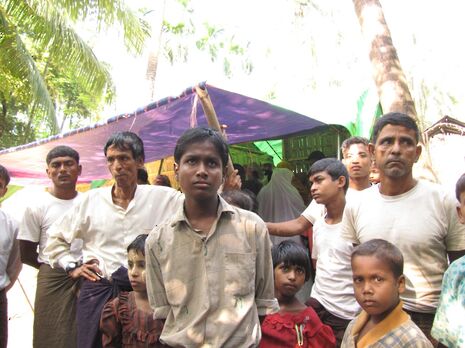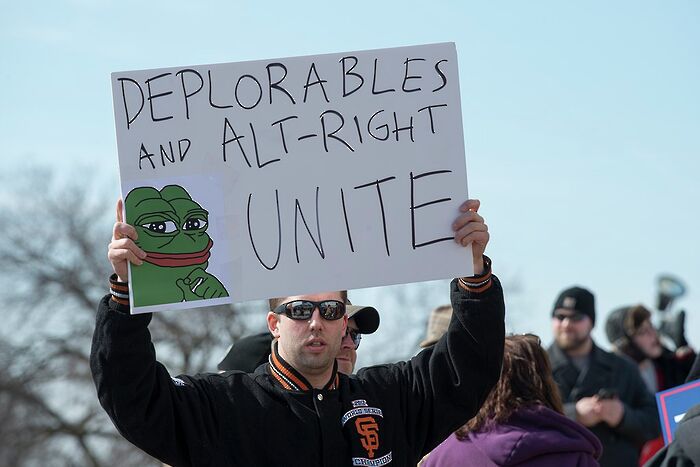ASEAN must not stand silent before a campaign of ethnic cleansing
Jefferi Hamzah Sendut argues that the latest atrocities in Myanmar’s Rakhine state demand concrete action from the ten-member Association of Southeast Asian Nations

The ongoing situation in Myanmar’s Rakhine state is a humanitarian disaster of grave proportions. What the UN human rights chief terms an apparent ’textbook example of ethnic cleansing’ is currently being carried out by the Myanmarese military against the Rohingya Muslim minority in the country. Since August 25, when militants claiming to represent the long-persecuted community launched attacks targeting police posts – which have been rightly condemned – the Myanmarese military’s retaliatory crackdown has forced over 300,000 Rohingya (at the time of writing) to flee in horrific conditions to neighbouring Bangladesh. Rohingya villages are being torched, while evidence of indiscriminate attacks, rape, and the deliberate use of landmines maiming fleeing children continues to flow outwards.
The narrative offered in the meantime by the Myanmarese military – that it is merely acting to combat terrorism – is a barefaced lie; the overwhelming human rights violations point to the contrary, and the military’s rejection of a unilateral ceasefire declared by the Arakan Rohingya Salvation Army militant group illustrate its bad faith.
“For a Nobel Peace Prize Laureate to enable the very military she struggled against to pursue the elimination of the Rohingya is abhorrent.”
What is perhaps even more appalling than this attempt at a cover-up is that State Counsellor Aung San Suu Kyi is prepared not just to remain mute, but to bemoan an ’iceberg of misinformation’, essentially corroborating the military narrative. For a Nobel Peace Prize Laureate to enable the very military she struggled against to pursue the elimination of the Rohingya is abhorrent. It is notable that amidst a so-called spread of misinformation, Myanmar continues to restrict media and aid agency activity in the state. More often than not, it does not bode well for the welfare of innocents when a government responds to allegations of rights violations by sustaining a media blackout.
In the light of the atrocities in Rakhine state, ASEAN’s silence, even after seven meetings on the issue, is deafening. This is not the first time that Myanmarese crises have found themselves on ASEAN’s agenda – ASEAN foreign ministers issued a collective statement in 2012 on ethnic conflict there. That statement signalled a readiness to provide humanitarian assistance, but did not include a reprimand of any form. No similar statement has yet been produced in response to the current violence. Even if such a statement was issued, it would amount to far too little.
There is an unshakeable moral imperative for ASEAN as a whole to call for Myanmar to bring the actions of its forces in line with international humanitarian law and allow unimpeded media, aid and UN fact-finding mission access to Rakhine state. ASEAN should also push for accountability for those responsible for abuses, and for the implementation of longer-term solutions, such as the granting of a legal status to the Rohingya (which they are currently denied).
Such a decisive role in combatting systematic human rights abuses within a country was not what ASEAN was designed for. ASEAN was formed to secure state sovereignty from foreign interference, and its political approach known as the ‘ASEAN Way’ emphasises consensus and mutual non-interference amongst members. Its legal framework is riddled with caveats to what would otherwise be bold steps in defence of rights in the region.
One need only read Article 2(2)(j) of the 2007 ASEAN Charter, which dictates that only upholding international humanitarian law as already consensually ‘subscribed to by ASEAN Member States’ is an ASEAN principle. Notwithstanding, ASEAN citizens must ask ourselves if there is anything to be celebrated in being part of an association so impotent when human beings within its bounds are treated as less than dirt.
True as it may be that the ‘ASEAN Way’ has yielded general stability, present events demand that we reevaluate. Steps in the right direction by individual member states are being taken: Malaysia’s foreign ministry has summoned Myanmar’s ambassador to Malaysia, and Indonesia’s Foreign Minister has travelled to Myanmar to back an end to the strife. But there is more to be done, both on collective political action and on legal reform. There is an unacceptable cost to ignoring these steps.
ASEAN cannot continue to rigidly stick to its guns if it means a non-response while ethnic cleansing, and potentially even genocide, is committed in its backyard. To do so devalues ASEAN’s considerable achievements elsewhere, endangers regional stability, and hurts the Association’s legitimacy in the eyes of the international community. Most importantly, it means that more people will continue to suffer. It’s time to step up
 News / Eight Cambridge researchers awarded €17m in ERC research grants27 December 2025
News / Eight Cambridge researchers awarded €17m in ERC research grants27 December 2025 News / Clare Hall spent over £500k opposing busway 24 December 2025
News / Clare Hall spent over £500k opposing busway 24 December 2025 Comment / League tables do more harm than good26 December 2025
Comment / League tables do more harm than good26 December 2025 Comment / The ‘class’ of Cambridge24 December 2025
Comment / The ‘class’ of Cambridge24 December 2025 News / Caius mourns its tree-mendous loss23 December 2025
News / Caius mourns its tree-mendous loss23 December 2025









